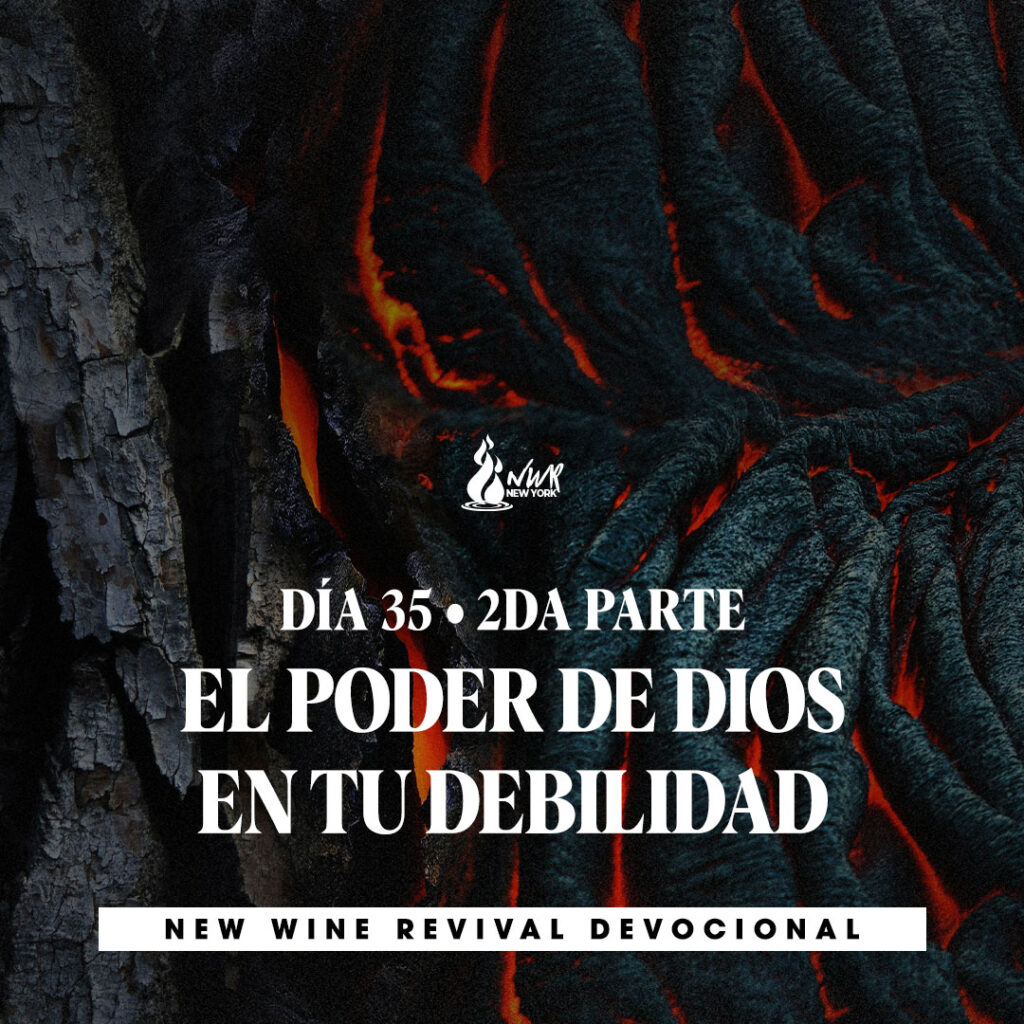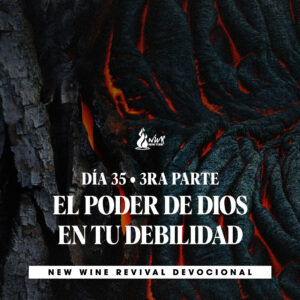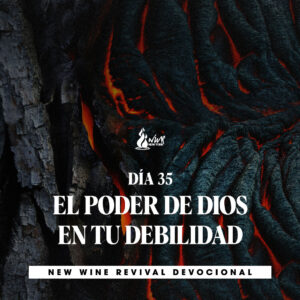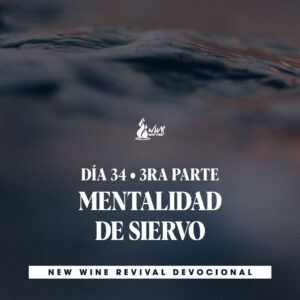
Dios escogió lo débil […] del mundo para avergonzar a los poderosos.
1 CORINTIOS 1:27 (PAR)
Cuando piensas en las limitaciones de tu vida, puedes ser tentado a concluir: «Dios nunca podría usarme». Pero a Dios no lo detienen nuestras limitaciones. De hecho, él disfruta poniendo su poder en envases comunes. La Biblia dice: «Pero tenemos este tesoro en vasijas de barro para que se vea que tan sublime poder viene de Dios y no de nosotros». Igual que la artesanía común, somos frágiles, defectuosos y fáciles de quebrar. Pero Dios nos usará si le permitimos trabajar por medio de nuestras debilidades. Para que esto ocurra debemos seguir el modelo de Pablo.
Reconoce tus debilidades. Admite tus imperfecciones. Deja de pretender que tienes todo bajo control y sé honesto contigo mismo. En vez de vivir negando o dando excusas, separa un tiempo para identificar tus debilidades personales. Puedes hacer una lista de ellas.
Dos grandes confesiones en el Nuevo Testamento ilustran lo que necesitamos para vivir saludablemente. La primera fue de Pedro, que le dijo a Jesús: «Tú eres el Cristo, el Hijo del Dios viviente». La segunda fue de Pablo, que le dijo a la multitud idólatra: «Solo somos seres humanos iguales a ustedes». Si quieres que Dios te use, debes conocer quién es Dios y quién eres tú. Muchos cristianos, sobre todo los líderes, olvidan la segunda verdad: ¡Solo somos humanos! Si necesitas una crisis para reconocerlo, Dios no vacilará en concedértela, porque te ama.
Alégrate con tus debilidades. Pablo dijo: «Por eso, prefiero sentirme orgulloso de mi debilidad, para que el poder de Cristo se muestre en mí. Me alegro de ser débil, de ser insultado y perseguido, y de tener necesidades y dificultades por ser fiel a Cristo. Pues lo que me hace fuerte es reconocer que soy débil». Al principio esto no tiene sentido. ¡Aspiramos a ser libres de nuestras debilidades, pero no a alegrarnos con ellas! Sin embargo, el contentamiento es una expresión de fe en la bondad de Dios. El mismo dice: «Dios, creo que me amas y sabes lo que es mejor para mí».
Reflexión:
A Dios le encanta usar a los débiles. Solemos negar nuestras debilidades, las defendemos, las excusamos, las ocultamos y las resentimos. Eso le impide a Dios usarlas de la manera que desea hacerlo. Dios tiene una perspectiva diferente de tus debilidades.
DAY 35/Second part • God’s Power in Your Weakness
God purposely chose what the world considers nonsense in order to shame the wise, and he chose what the world considers weak in order to shame the powerful.
1 CORINTHIANS 1:27 (TEV)
When you think of the limitation in your life, you may be tempted to conclude, “God could never use me.” But God is never limited by our limitations. In fact, he enjoys putting his great power into ordinary containers. The Bible says, “We are like clay jars in which this treasure is stored. The real power comes from God and not from us.” Like common pottery, we are fragile and flawed and break easily. But God will use us if we allow him to work through our weaknesses. For that to happen, we must follow the model of Paul.
Admit your weaknesses. Own up to your imperfections. Stop pretending to have it all together, and be honest about yourself. Instead of living in denial or making excuses, take the time to identify your personal weaknesses. You might make a list of them.
Two great confessions in the New Testament illustrate what we need for healthy living. The first was Peter’s, who said to Jesus, “You are the Christ, the Son of the living God.” The second confession was Paul’s, who said to an idolizing crowd, “We are only human beings like you.” If you want God to use you, you must know who God is and know who you are. Many Christians, especially leaders, forget the second truth: We’re only human! If it takes a crisis to get you to admit this, God won’t hesitate to allow it, because he loves you.
Be content with your weaknesses. Paul said, “I am glad to boast about my weaknesses, so that the power of Christ may work through me. Since I know it is all for Christ’s good, I am quite content with my weaknesses.” At first this doesn’t make sense. We want to be freed from our weaknesses, not be content with them! But contentment is an expression of faith in the goodness of God. It says, “God, I believe you love me and know what’s best for me.”
Reflection:
God loves to use weak people. Usually we deny our weaknesses, defend them, excuse them, hide them, and resent them. This prevents God from using them the way he desires. God has a different perspective on your weaknesses.



